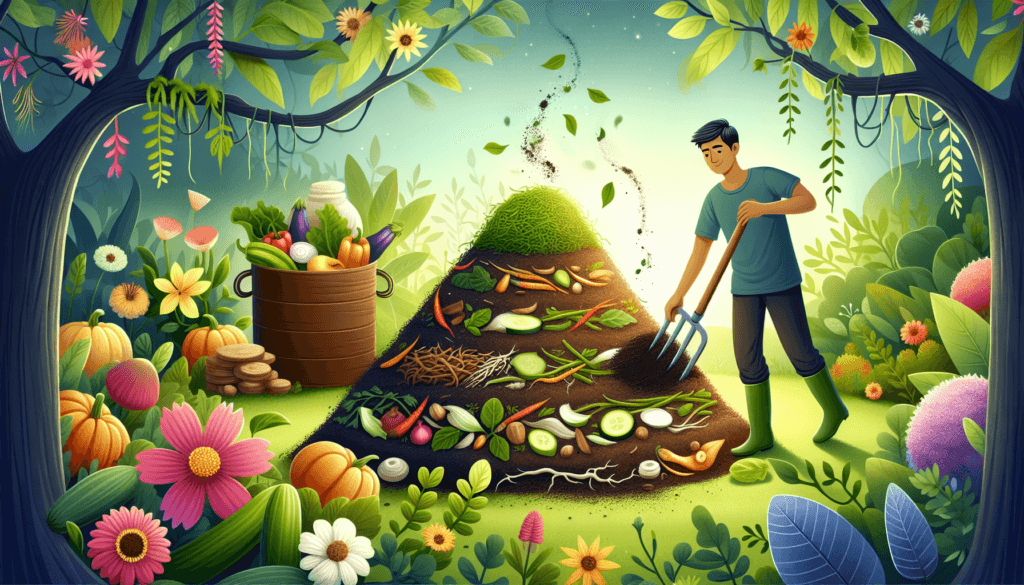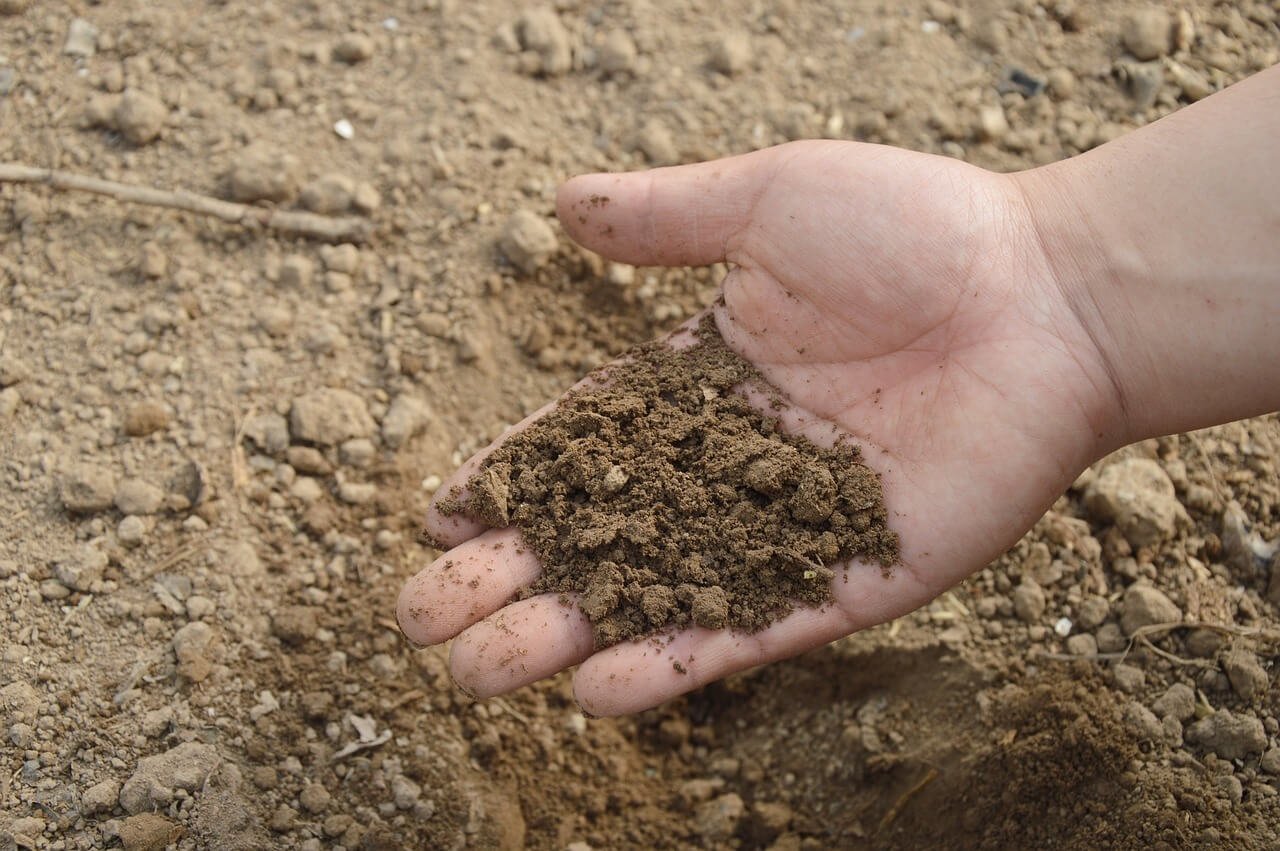If you’re looking to give your garden a boost and contribute to a healthier environment, look no further than composting. Not only does composting provide essential nutrients for your plants, but it also reduces waste going into landfills and helps combat climate change. By simply collecting and decomposing organic materials like kitchen scraps and yard waste, you can create a nutrient-rich soil amendment that improves soil structure, retains moisture, and promotes plant growth. Join the growing movement of gardeners embracing composting and enjoy the benefits it brings to your garden and beyond.
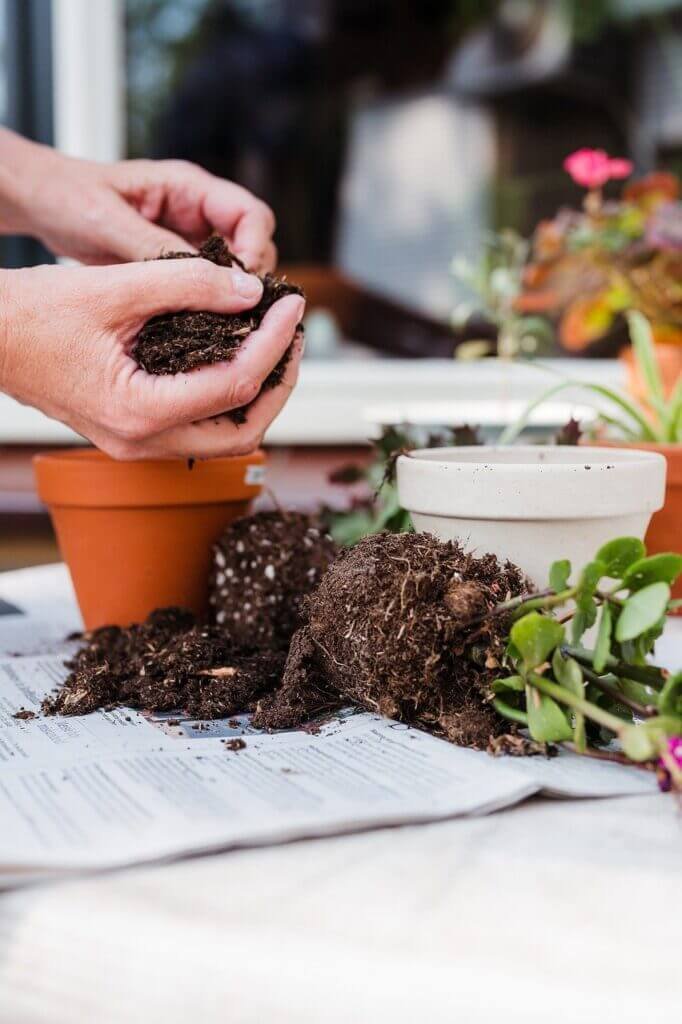
Enhances Soil Quality
Composting is an incredibly effective way to enhance the quality of your soil. By adding organic matter to the soil, compost increases its nutrient content and improves its structure. When you compost, you are providing essential nutrients to your plants, giving them the fuel they need to grow and thrive. Additionally, the organic matter in compost helps to retain moisture in the soil, reducing the need for frequent watering. Overall, composting enriches your soil and creates the perfect environment for your plants to flourish.
Increases Organic Matter Content
One of the key benefits of composting is its ability to increase the organic matter content of your soil. Organic matter is crucial for soil health as it provides essential nutrients and enhances the soil’s ability to retain moisture. Through the process of composting, kitchen scraps, yard waste, and other organic materials are broken down into nutrient-rich humus that can be added to your soil. This increase in organic matter promotes optimal plant growth and ensures that your garden is receiving the vital nutrients it needs.
Improves Soil Structure
In addition to increasing organic matter content, composting also improves the structure of your soil. When you add compost to your garden, it helps to bind the soil particles together, creating larger aggregates. These aggregates create channels that allow water to penetrate more easily, preventing soil erosion and water runoff. Improved soil structure also allows for better root development and gas exchange, making it easier for plants to access essential nutrients and oxygen. By incorporating compost into your soil, you are laying the foundation for healthy and strong plants.
Enhances Nutrient Content
Compost is often referred to as “black gold” for a reason. When you compost, you are creating a nutrient-dense amendment for your soil. The rich humus that results from the breakdown of organic materials in the composting process is filled with essential elements like nitrogen, phosphorus, and potassium. These nutrients are crucial for plant growth and play a vital role in their overall health. By incorporating compost into your garden, you are essentially providing your plants with a buffet of nutrients that will promote robust growth and vibrant blooms.
Reduces Waste
Composting is not only beneficial for your garden but also for the environment. By diverting organic material from landfills, you are reducing the amount of waste that ends up in these sites. When organic waste decomposes in landfills, it produces methane gas, a potent greenhouse gas that contributes to climate change. By composting at home, you are helping to reduce methane emissions and minimize the environmental impact of organic waste disposal.
Diverts Organic Material from Landfills
When you compost, you are actively diverting organic material from ending up in landfills. Instead of sending your kitchen scraps and yard waste to be buried and decomposed in a landfill, you can transform them into nutrient-rich compost that will benefit your garden. This diversion of organic material reduces the strain on landfills and minimizes the need for costly waste management processes. Composting is the simple and sustainable solution to reduce the amount of waste that ends up in landfills.
Reduces Methane Emissions
One of the most significant benefits of composting is its potential to reduce methane emissions. When organic waste is buried in landfills, it decomposes in an anaerobic environment, producing methane gas. Methane is a potent greenhouse gas that is significantly more harmful to the environment than carbon dioxide. By composting at home, you are creating an aerobic environment for the breakdown of organic waste, which significantly reduces the production of methane. By choosing to compost, you are making a positive impact by reducing greenhouse gas emissions and combating climate change.
Promotes Sustainable Gardening
Composting is at the heart of sustainable gardening practices. It enables you to reduce the need for chemical fertilizers, conserve water, and promote biodiversity in your garden. By incorporating composting into your gardening routine, you are actively contributing to a more sustainable and environmentally friendly approach to gardening.
Reduces the Need for Chemical Fertilizers
Chemical fertilizers are commonly used to provide plants with the necessary nutrients for growth. However, these fertilizers often contain synthetic ingredients that can be harmful to both the environment and your plants. By composting and incorporating the resulting nutrient-rich humus into your soil, you can minimize or even eliminate the need for chemical fertilizers. Compost provides a natural and organic source of nutrients, allowing your plants to thrive without relying on synthetic additives.
Conserves Water
Water conservation is a crucial aspect of sustainable gardening practices. By adding compost to your soil, you are effectively enhancing its ability to retain moisture. The organic matter in compost acts as a sponge, soaking up water and releasing it slowly over time. This reduces the need for frequent watering and helps to conserve water, especially in dry or arid regions. By composting, you are actively contributing to water conservation efforts and promoting a sustainable approach to gardening.
Promotes Biodiversity
Biodiversity is essential for the health and resilience of ecosystems. When you compost and enrich your soil with organic matter, you are creating a diverse and vibrant environment for beneficial organisms. Compost provides a habitat for beneficial bacteria, fungi, worms, and other soil-dwelling organisms that contribute to healthy soil and plant growth. By encouraging the presence of these organisms, you are promoting biodiversity in your garden and creating a thriving ecosystem.
Saves Money
Composting is not only environmentally friendly but also economically advantageous. By composting at home, you can save money on expensive soil amendments and reduce your watering costs. Additionally, composting reduces the need for chemical fertilizers, further saving you money in the long run. It’s a win-win situation for both your wallet and the environment.
Eliminates the Need for Expensive Amendments
Amending your soil with commercial products can be costly, especially if you have a large garden or landscape. However, by composting and incorporating the resulting compost into your soil, you can eliminate or greatly reduce the need for these expensive amendments. Compost provides a natural and cost-effective solution for improving soil quality, eliminating the need to purchase costly fertilizers and soil conditioners. By composting, you are not only saving money but also utilizing a sustainable and readily available resource.
Reduces Watering Costs
Watering your garden can be a significant expense, especially during dry and hot seasons. However, by incorporating compost into your soil, you can significantly reduce your watering costs. Compost’s ability to retain moisture means that you won’t need to water as frequently, saving both water and money. By composting and improving your soil’s water-holding capacity, you are maximizing the efficiency of your watering efforts and reducing your overall water consumption.
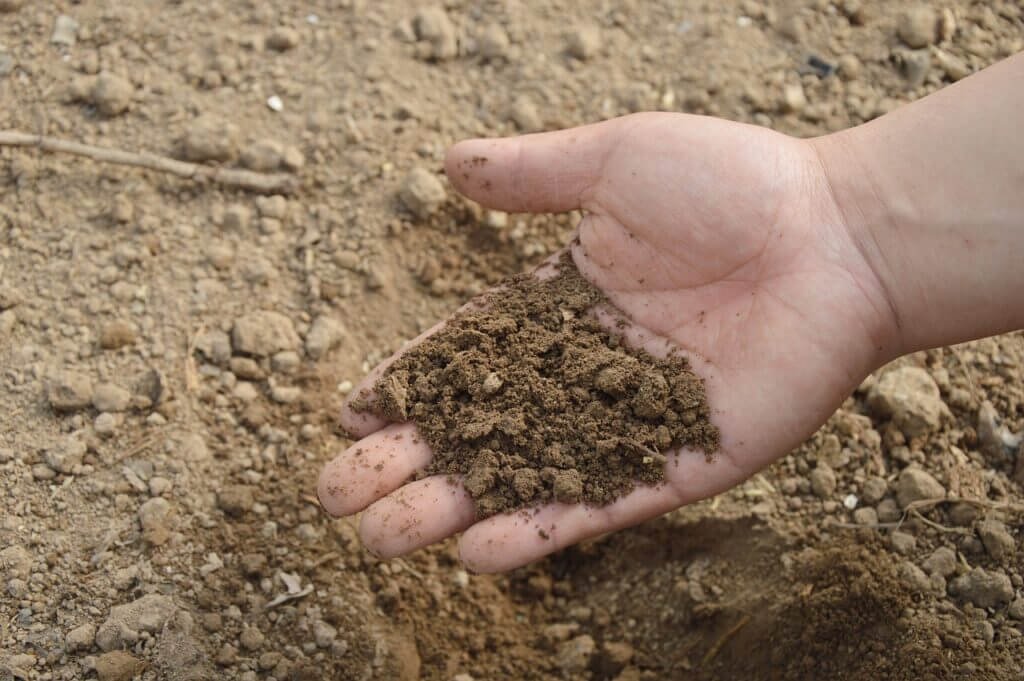
Easy to Implement
Composting may sound intimidating, but in reality, it is a straightforward and easily implementable practice. It requires minimal effort on your part and can be done using everyday kitchen and yard waste. With a little bit of knowledge and a small investment of time, you can start composting and reap the benefits for your garden and the environment.
Requires Minimal Effort
Composting is not a labor-intensive or time-consuming activity. Once you have set up your composting system, whether it be a traditional compost bin or a vermicomposting bin, it will require minimal effort to maintain. You need to periodically add organic materials to your compost pile, maintain the right moisture levels, and occasionally turn or aerate the compost to speed up decomposition. Composting is a simple and low-maintenance practice that can easily fit into your busy schedule.
Uses Everyday Kitchen and Yard Waste
Composting is an excellent way to repurpose everyday kitchen and yard waste. Instead of throwing away vegetable scraps, coffee grounds, and leaves, you can compost them and transform them into valuable resources for your garden. By composting these materials, you are diverting them from ending up in the trash and giving them a second life as nutrient-rich compost. Kitchen and yard waste are readily available and abundant, making composting a sustainable practice that utilizes resources that would have otherwise gone to waste.
Reduces Disease and Pest Issues
Composting not only enhances the health of your plants but can also help to reduce the occurrence of diseases and pests in your garden. By providing a healthy microbial community and suppressing plant diseases, compost helps to create a thriving and resilient garden ecosystem.
Provides Healthy Microbial Communities
Compost is teeming with beneficial microorganisms that contribute to soil health and plant growth. These organisms, such as bacteria and fungi, create a diverse and balanced microbial community in your soil. This microbial community is essential for nutrient cycling, decomposition of organic matter, and disease suppression. By incorporating compost into your soil, you are providing a rich source of beneficial microorganisms, promoting the establishment of a healthy and robust microbial community.
Suppresses Plant Diseases
The presence of compost in your garden can actively suppress plant diseases. Compost contains beneficial microorganisms that can outcompete and inhibit the growth of harmful pathogens. These microorganisms create an environment that is unfavorable to disease-causing organisms, effectively reducing the occurrence of plant diseases in your garden. By incorporating compost into your soil, you are creating an ecosystem that is more resistant to diseases, providing your plants with a natural defense mechanism.
Discourages Harmful Pests
Compost can also deter harmful pests from your garden. The presence of diverse and healthy plants in a compost-rich environment can attract beneficial insects that prey on garden pests. Ladybugs, lacewings, and predatory mites are just a few examples of beneficial insects that thrive in compost-rich gardens and help to keep harmful pests in check. By cultivating a garden that is abundant in compost, you are promoting a balanced ecosystem and reducing the need for harmful pesticides.
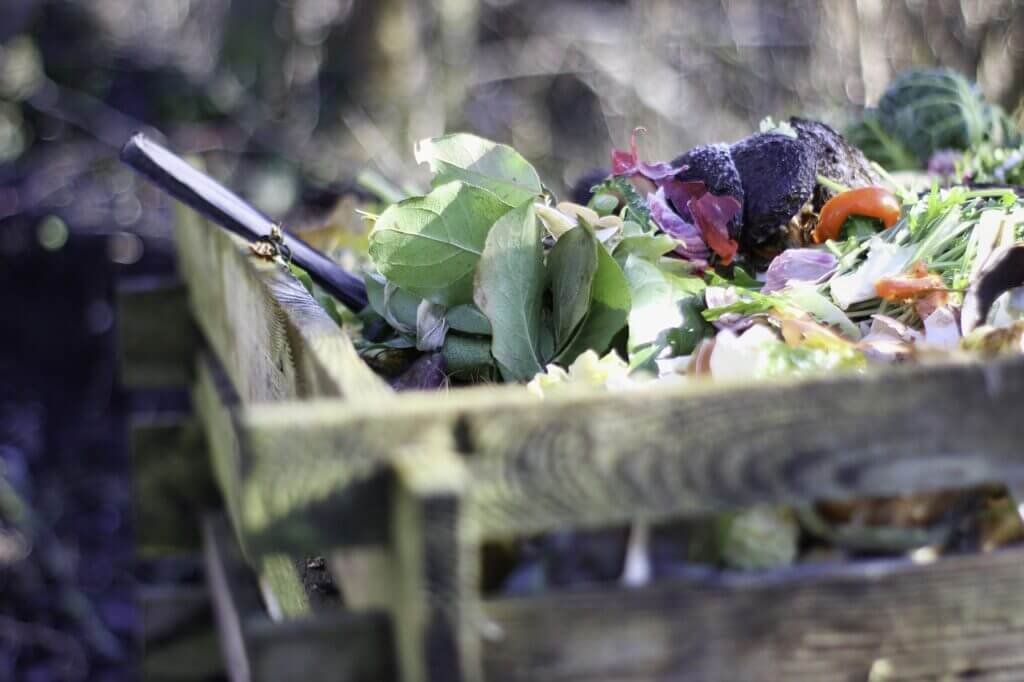
Increases Plant Growth and Productivity
One of the most exciting benefits of composting is its ability to enhance plant growth and productivity. By providing essential nutrients, enhancing root development, and improving the overall health of your plants, compost significantly increases their growth and productivity.
Enhances Root Development
Compost plays a crucial role in root development. The nutrients and organic matter in compost stimulate root growth, resulting in stronger and more extensive root systems. Enhanced root development allows plants to access nutrients and water more efficiently, ensuring their proper growth and development. By incorporating compost into your soil, you are creating an optimal environment for your plant’s roots to thrive, promoting their overall health and productivity.
Improves Plant Health
Composting improves plant health in several ways. The nutrients provided by compost promote overall plant vigor and resilience. Plants grown in compost-enriched soil are less susceptible to nutrient deficiencies and are more capable of withstanding environmental stressors. Additionally, the organic matter in compost helps to enhance soil structure and water-holding capacity, providing plants with a consistent supply of moisture and reducing water stress. By using compost, you are investing in the long-term health of your plants and ensuring their optimal growth and productivity.
Increases Crop Yields
Composting has a direct impact on the yield of your garden crops. The increased nutrient content and improved soil structure provided by compost create optimal conditions for plant growth and productivity. Plants grown in compost-enriched soil produce larger, healthier, and more abundant crops. Compost’s ability to retain moisture also ensures that your plants have access to the water they need to thrive, further enhancing their yield. By incorporating compost into your garden, you are setting the stage for bountiful harvests and maximizing the productivity of your crops.
Alleviates Environmental Impact of Chemical Fertilizers
The use of chemical fertilizers in conventional gardening practices can have harmful effects on the environment. However, by composting and utilizing the resulting compost in your garden, you can alleviate the environmental impact of these fertilizers.
Prevents Water Pollution
Chemical fertilizers can contribute to water pollution when they leach into waterways. Excess nutrients, such as nitrogen and phosphorus, from these fertilizers can cause algal blooms and deplete oxygen levels in water, harming aquatic ecosystems. By composting and using natural compost as a nutrient source, you eliminate the risk of chemical fertilizers leaching into water bodies and polluting the environment. Composting provides a sustainable and environmentally friendly alternative that helps protect water resources.
Reduces Energy Consumption in Fertilizer Production
The production of chemical fertilizers is an energy-intensive process that contributes to greenhouse gas emissions and resource depletion. By composting and utilizing the resulting compost as a natural fertilizer, you are reducing the demand for these synthetic fertilizers and their associated energy consumption. Using compost as a nutrient source is a more sustainable and energy-efficient alternative that helps minimize the environmental impact of fertilizer production.
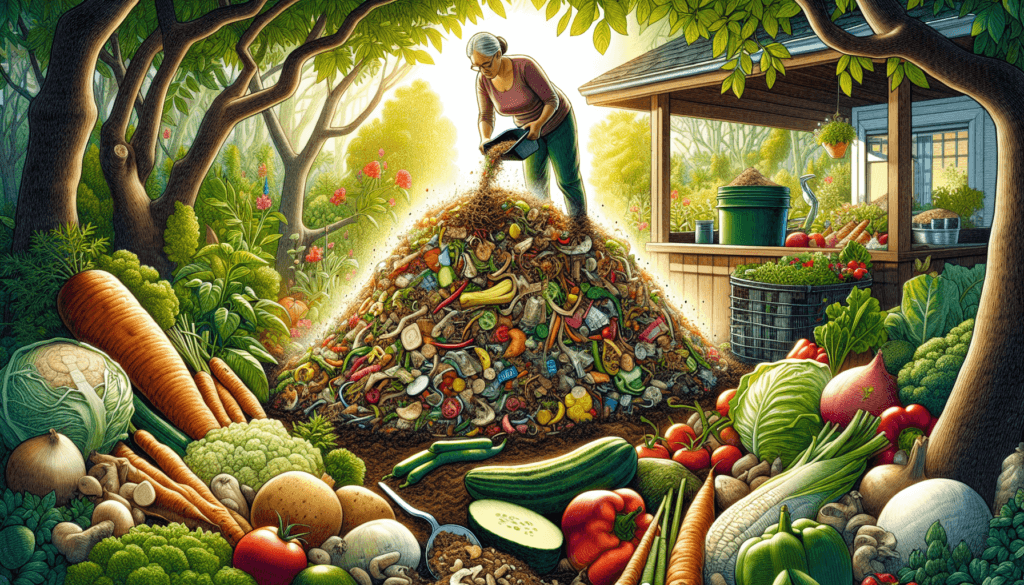
Builds Community Engagement
Composting is not only an individual endeavor but can also foster community engagement. By encouraging the sharing of compost and knowledge, you can strengthen relationships within your community and promote a culture of sustainability.
Encourages Sharing of Compost and Knowledge
Composting can be a communal activity that brings people together. By sharing excess compost with your neighbors or local community, you are providing them with a valuable resource for their gardens. Additionally, sharing knowledge and experiences related to composting can help others get started and learn from your insights. This sharing of both compost and knowledge creates a sense of community and fosters a spirit of collaboration and sustainability.
Strengthens Relationships
Composting can be a catalyst for building relationships within your community. The act of composting and the shared goal of sustainability can bring people together and create lasting connections. Whether it’s through community composting initiatives or garden clubs, composting provides opportunities for individuals to come together, learn from one another, and strengthen relationships. By participating in composting efforts, you are not only improving your garden but also fostering a sense of community and belonging.
Educational Opportunity
Composting is an educational opportunity that teaches sustainable practices and fosters an understanding of natural cycles. By involving children and adults alike in the process of composting, you can promote environmental stewardship and create a more knowledgeable and eco-conscious society.
Teaches Sustainable Practices
Composting serves as a practical and tangible way to teach sustainable practices. By involving children in the composting process, you can instill in them an understanding of the importance of reducing waste, recycling organic materials, and conserving resources. Composting provides an opportunity for hands-on learning and empowers individuals to take an active role in caring for the environment. By teaching sustainable practices through composting, you are helping to create a more environmentally conscious generation.
Fosters Understanding of Natural Cycles
Composting allows individuals to witness and understand the natural cycles of decomposition and nutrient recycling. By observing the transformation of organic waste into nutrient-rich compost, people can gain a deeper appreciation for the intricate balance of nature. Composting fosters an understanding of how organic materials break down and return to the earth, completing the cycle of life. This understanding can encourage individuals to adopt more sustainable behaviors and work towards a more harmonious relationship with the natural world.
In conclusion, there are numerous benefits to composting in your garden. From enhancing soil quality and reducing waste to promoting sustainable gardening practices and saving money, composting is a practice that offers a wide range of advantages. By incorporating compost into your garden, you are not only improving the health and productivity of your plants but also making a positive impact on the environment. Composting is a simple and accessible practice that anyone can adopt, and it serves as an educational opportunity to teach sustainable practices and foster an understanding of natural cycles. Start composting today and reap the rewards for both your garden and the planet.
